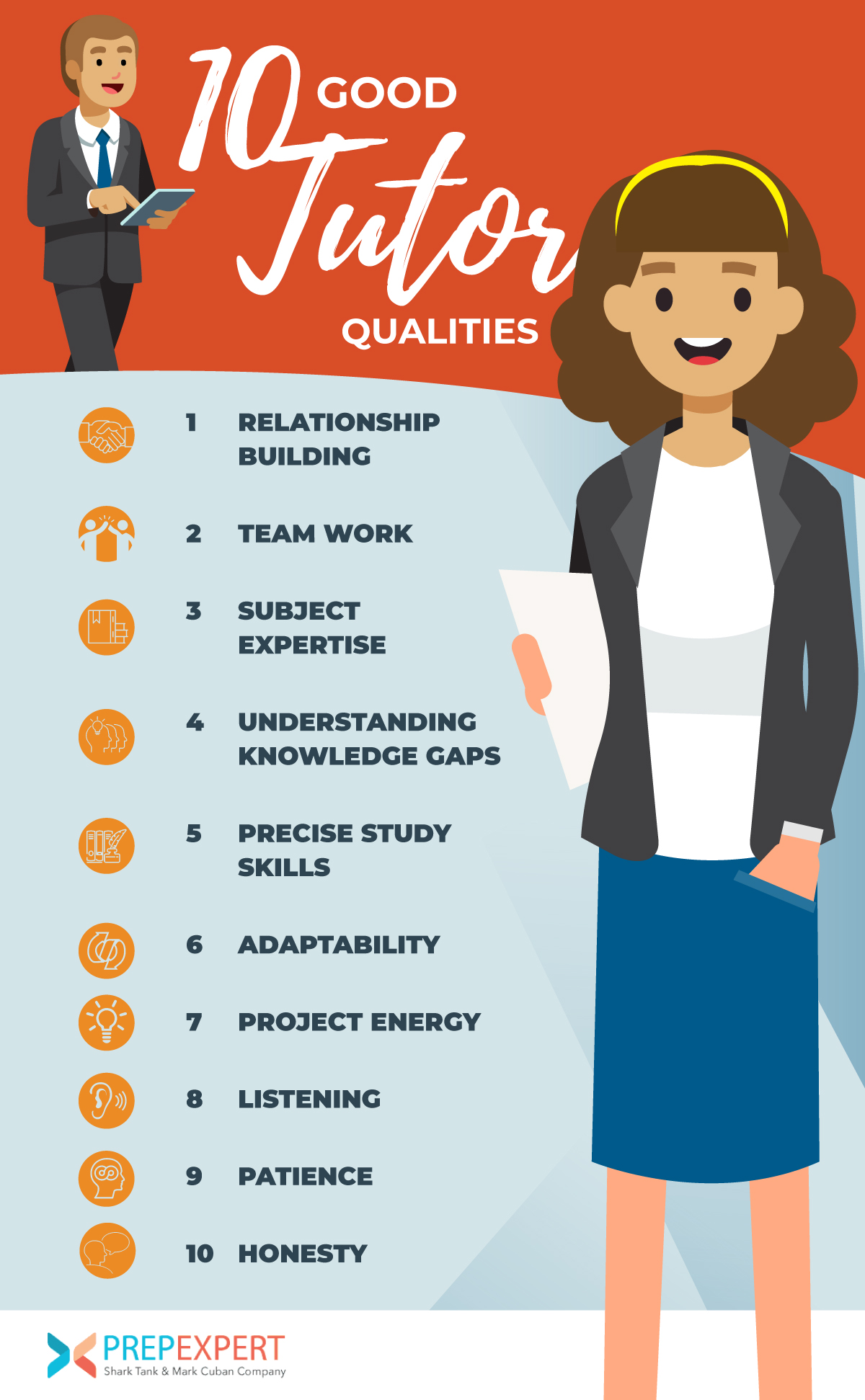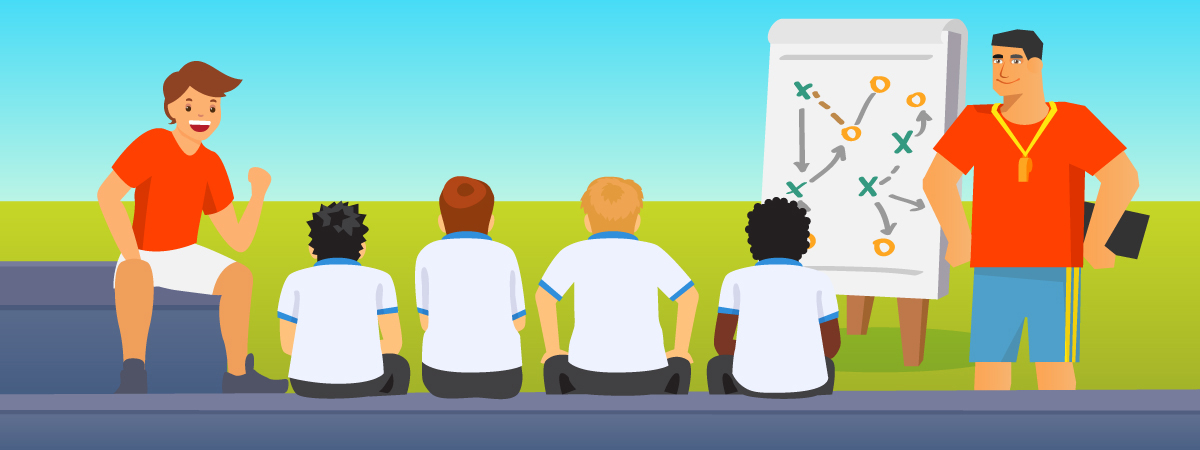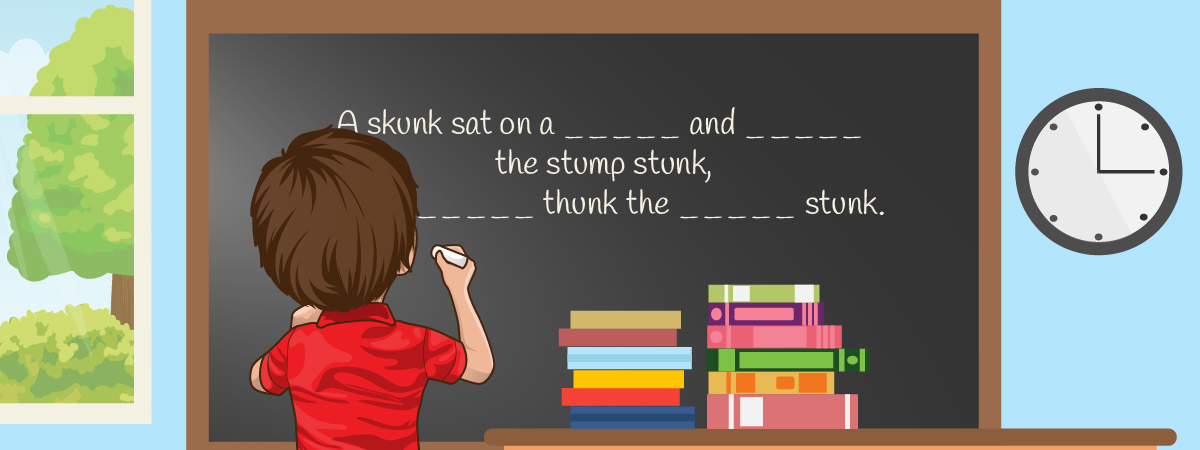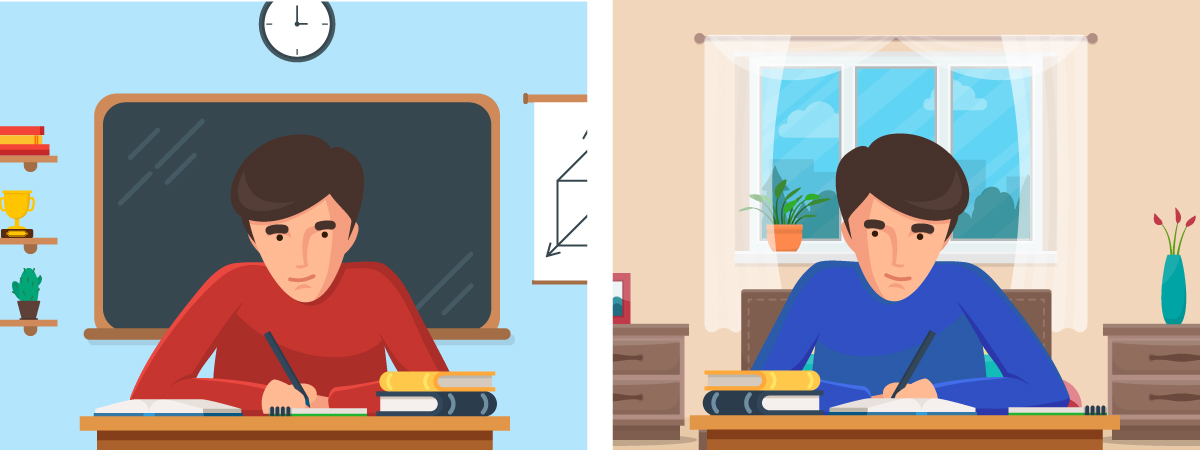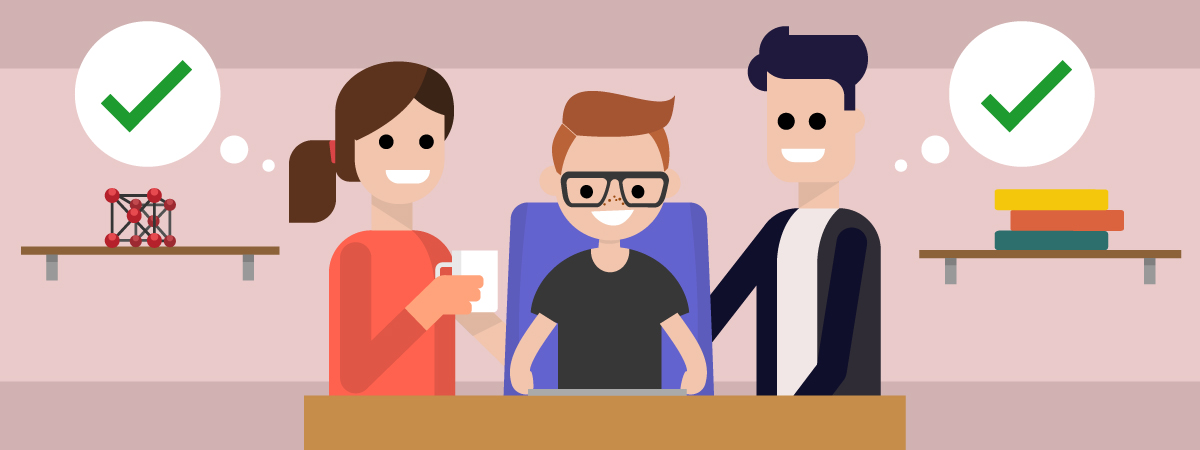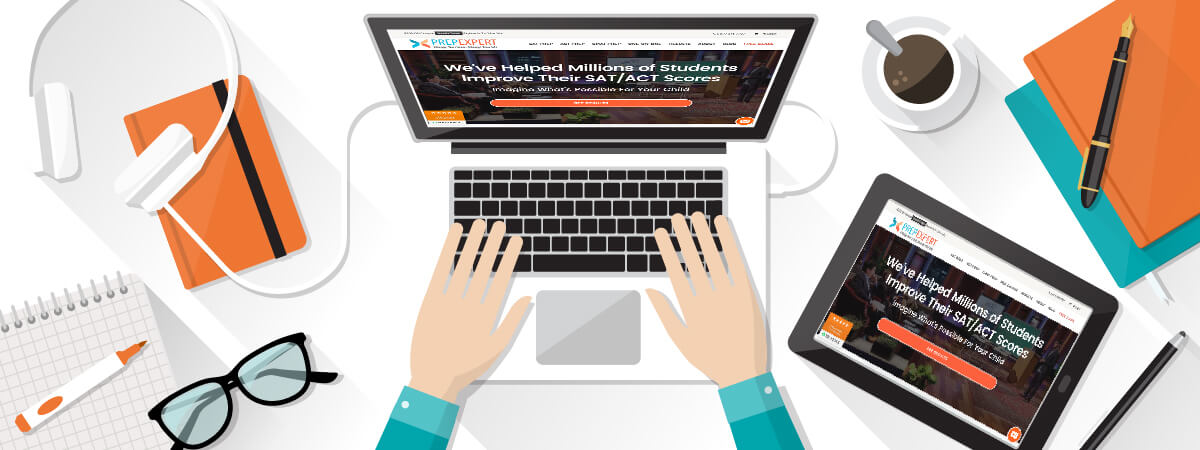10 Good Tutor Qualities
Let’s face it; everyone needs extra help sometimes. When it comes to school, a private tutor can help prepare a student for an important exam or overcome a particularly difficult subject.
Unfortunately, they’re not all created equal. Know what to look for before committing time and money to a substandard tutor.
Here are 10 qualities that every good tutor should possess when considering to work with one.
Don’t forget to check out our various SAT prep and ACT prep courses today.
Relationship Building
One of the first traits to look for in a potential tutor is their relationship building skills.
The student/tutor relationship is essential because it is both personal and professional. A good tutor will work hard to listen to a new student, build rapport, and ultimately create trust and respect between each other.
Once a student knows that this person can be trusted, it’s much easier to be open to the information and help that’s then provided. Without that groundwork laid out first, words may be spoken, but the chances that learning happens is low.
[leadmagnet_five]
Team Work
An insightful tutor starts the process by interviewing everyone involved in this endeavor.
That process includes not just the student but also the parents and teacher too. Why? Because each party has a particular insight into the situation and can speak to the student’s strengths and weaknesses.
A teacher can inform the tutor what’s been covered in class so far, and where the student appears to be having trouble. Speaking with parents obviously gives insight into the child’s personality; that information can help a good tutor assess how to approach structuring lessons effectively.
Subject Expertise
Great tutors are experts in specific, academic content.
They understand certain subjects inside and out, from basic concepts to theories, application, etc. Whatever is asked about a subject, they should be able to handle it without a problem. The benefit of this deep understanding is that it allows instructors to create projects and assignments that are more engaging to their students.
They can also modulate how easy or difficult this work needs to be for the student at a given time. They can also figure out ways to align the subject matter to the student’s own life or personal experiences to ensure that it sinks in better.
Understanding Knowledge Gaps
Any good tutor will quickly assess where the missing blocks of information are, and start filling them in.
A student can only understand a subject fully if he, or she, has a solid foundation presented. If they are missing information or context, a tutor can figure out these gaps and fill them in. Moreover, they can fold that new knowledge in with what the student already knows.
Not only does this enlighten the student mentally, but it also instills confidence by reinforcing their understanding of what’s already been taught. Confidence breeds greater engagement and lessens anxiety.
Precise Study Skills
A student/tutor relationship eventually ends, so a good one sets in place productive study habits.
A good tutor will work with his or her student to not only impart new information but provide study methods and strategies the student can use moving forward. There’s no point spending all that time to teach a subject and the information is forgotten immediately afterward.
A good one will fine-tune what the student already does, introduce new methods, and constantly check how well they’re reviewing the information outside of class. This attention should not only help the student with that particular class but also when learning new skills and subjects afterward.
Adaptability
Every good tutor knows there isn’t a one-size-fits-all approach.
The tutor should be able to adjust the approach based on the student’s individual needs and academic difficulties. Very often, as students gain a better understanding of problem areas over time, a tutor’s lesson plan and assignment approach will change to better address developments.
What could start as a comprehensive teaching program could morph into simpler, review sessions and application lessons. Some students may do better with a more theoretical approach, while others need as many hands-on activities as possible for material to stick. A good tutor can assess which routes to take and when.
Project Energy
To build a solid relationship, a good tutor must have abundant energy and enthusiasm.
If your tutor acts like he or she is simply there to collect a check, then don’t continue the sessions. Again, a productive student/tutor relationship is built on trust and respect. It’s also built on motivation.
If a tutor provides little enthusiasm to help out, then the student will not be motivated to learn. Without motivation, maximum effort will not be put into the relationship. Therefore, the tutor must lead by example and always be projecting energy into the interactions.
Listening
Listening closely to a student’s needs and questions is another telltale sign of a good tutor.
He, or she, should not only ask questions but actively listen to the student, parents, teacher, etc. Take in the information and inquire further for clarification. More importantly, a tutor who listens informs their student that they are there to provide support personally, as well as academically. The student will then feel safe and valued in their interactions from there. Curiosity and committed involvement demonstrate strong listening skills too.
[leadmagnet_two]
Patience
Patience is paramount.
Every student is different. Their learning styles are different, their problem areas are different, their personalities are different. Some kids need less help comprehending material than others. Throughout the process, a good tutor demonstrates the patience to ensure the student has fully absorbed the presented material and can apply it effectively.
An experienced tutor takes the time to go over particular problems again and again until both student and instructor are 100% certain that everything is understood. Patience guarantees that level of commitment. Without it, lessons are rushed through and the desired benefits are missed.
Honesty
Tutors aren’t superheroes or geniuses; the best ones admit that honestly.
Many tutors are terrified of admitting their shortcomings to students, be they intellectual, personal, etc. The reasons for this hiding include fear or perceived incompetence, embarrassment, ego, etc. However, it is ok for a tutor to admit they aren’t sure about the answer to a question.
It shows that both the instructor and student are in the same boat; this creates a level of understanding between one another that creates trust. It also gives them something to work towards together – finding the right answer. Ultimately, this search benefits the student more.
How Prep Expert® Can Help You
Besides our regular prep courses, we also offer private tutoring services for students who need extra help.
Prep Expert® is known its industry-leading SAT and ACT prep courses, but we offer so much more. Our high-scoring instructors are also available for private tutoring sessions as well. If you, or your child, need extra help preparing for either test, we can provide that for you.
If they are having trouble with a particular school subject, like US History or Physics, we can help out there as well. We also provide specific tutoring instruction for AP exams and SAT Subject Tests too.
No tutoring need is too small for us. For more information or to book an instructor, simply go to our Tutoring page today.
For more test strategy, college admissions, and scholarship application tips sign up for our FREE class happening right now!
Written by Todd Marcus
More from Todd Marcus

Taking The ACT Junior Year
If you're ambitious and want to give yourself plenty of time for score improvement, then consider taking the ACT junior…
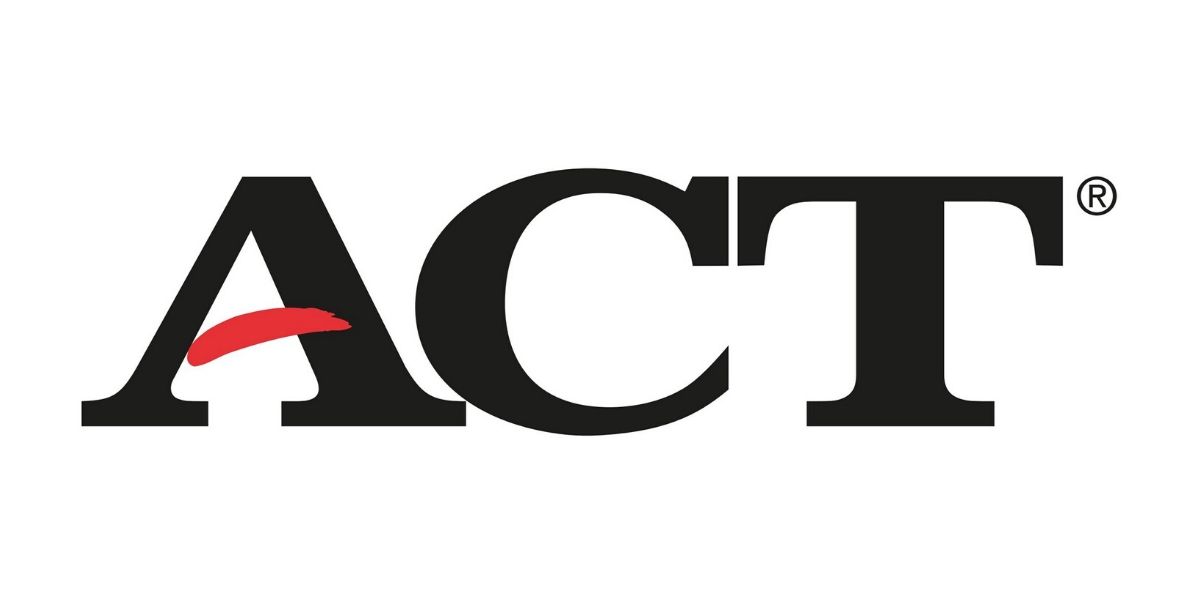
ACT 2020 Score Release Dates
Here then are the ACT 2020 score release dates to plan around, as well as, the different kinds of available…

How To Determine Your Average SAT Study Time
If you want a high score on the SAT, then you need to put in the hours. There's no way…
